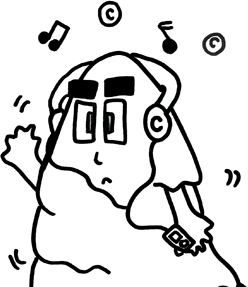by Brian Trimboli
We’re brought up on stories and the overall meaning they convey to teach facts alongside moral values. But what if that knowledge is only surface deep to begin with? What if we, as writers, often think of the page as two dimensional, and forget the fundamental sounds of our voices toward saying what we mean. As all poets are contemporaries in one way or another, or at least are in dialogue with each other, it seems there is a lot for us to learn from each other. Often though, the wires get crossed up, and the true conveyance of something as well as its relevance remains unheard and intangible.
But John Berryman approaches the asymptote of this achievement more closely than any other American poet, and it’s because of this that he’s considered one of the founders of the Confessional School of Poetry. In seeking a more efficient way of communication of emotion, as opposed to the abstract knowledge of what that emotion might feel like, he put an emphasis on the auditory response to his poetry. The reader is forced to work with irregular rhyme and meter through each section of The Dream Songs, and the fractured result replaces the story being told as the forefront of the narrative. While reading poetry, it sometimes becomes difficult to differentiate the story from how it’s being told, but within Berryman’s poems the reader experiences both simultaneously.
 So even now, decades later, the sounds of these poems make relevant the personal struggle that enfolds. Above all else, these are poems that will make you feel. Berryman paces the reader to understand his pain and triumphs as compared to their own pain and triumph. The struggle of a day in relation to a life is found within Berryman’s struggle with each line in relation to its entirety; not the entirety of a poem, but the entirety of his work. Almost like a minute of being Berryman, and then another, and then another.
So even now, decades later, the sounds of these poems make relevant the personal struggle that enfolds. Above all else, these are poems that will make you feel. Berryman paces the reader to understand his pain and triumphs as compared to their own pain and triumph. The struggle of a day in relation to a life is found within Berryman’s struggle with each line in relation to its entirety; not the entirety of a poem, but the entirety of his work. Almost like a minute of being Berryman, and then another, and then another.
Play the body like a stereo; feed it the full range of music and you’ll discover what it’s capable of empathizing and expressing. The trouble is we mostly express through language, and without speakers, language is inert words. Worse still, read without the tenacity with which they were written, words often fall short of communicating the nuance expressed when read out loud.
Berryman writes in Dream Song 366, “These Songs are not meant to be understood, you understand. / They are only meant to terrify & comfort.” He provides a roadmap for the reader which begins at Dream Song 1 and guides toward its conclusion. The reader is forced to learn about the world these poems were written from, and how similar the voices of the mad are to those just on the edge. The path leaps desperately to touch upon every square foot that it travels, but it also brings the reader along for every inch; which grows darker and darker till premonitions of Berryman’s own suicide are foreshadowed.
Tags: Community, Form, John Berryman, Voice





